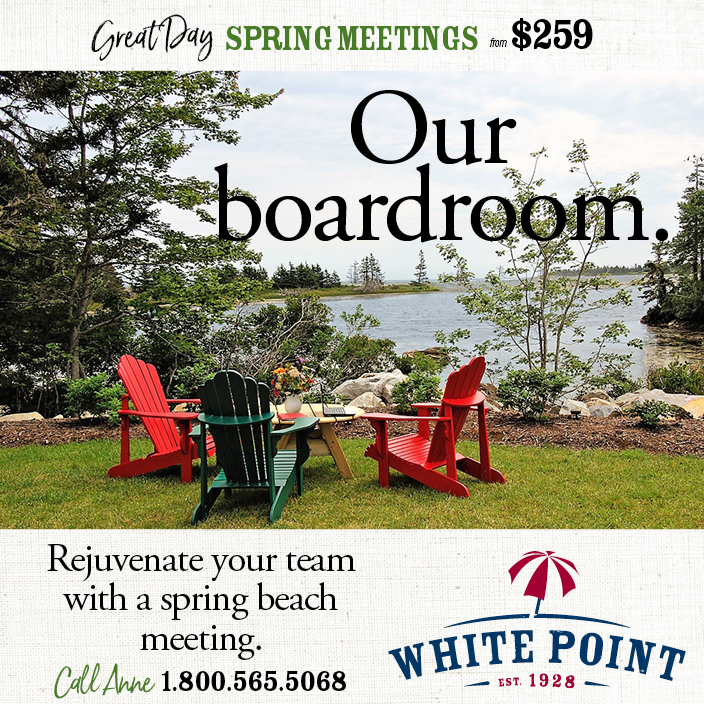Publishing Twice a Week
The Macdonald Notebook is your source for exclusive Business & Inside Politics publishing every Saturday and Sunday.
Latest Issue
Baltimore Bridge: Could It Happen In Port of Halifax? Part VI
Exclusive: Last Weekend Port of Halifax Faced Closure To Large Ships – Here’s Why…
Alison Strachan: Fond Memories of Lunenburg’s Joy Saunders
Dalhousie’s Role as ‘Civic University’ More Relevant than Ever: President Kim Brooks
Authors Gather In Halifax For Book Reading Events
In This Harbour Town, Affordable Iconic Fishing Captains’ Mansions For Under $400,000
MacPolitics: MacLeod Wins Pictou West Nod
Liberals Could Face Contested Nomination In Pictou West
Saturday Edition, Below
Alison Strachan: Something’s Got To Change And I’m Not Alone In Thinking This Way
Sandra Bryant Downsizing Office Needs, Expects Busy Season
Containerized Cargo Volume Down Dramatically In Port Of Halifax
Halifax Port: Board Member Carol Ann Miller Goes On Overseas Trip. Will She Suffer Diana Dalton’s Fate?
St. Martha’s Regional Hospital: A Snoop Looked At Health Records Of Thousands Of Antigonish Patients And Was Fired
MacPolitics: Jamie Baillie: We Need A Halifax Mayoral Contender Who Can Coalesce Tory-Liberal Support
MacPolitics: Brad Johns Out Of Houston Cabinet After Epidemic Remark
MacPolitics: Michelle Livingston Has Left The Building
That Is The End Of The Saturday Edition
Check Out The Notebook Archives For 7,200 stories Since Founding Year of 2017
Return Home
Contact The Editor
Articles by Topic
- Art Hustins Jr: Life & Times (4)
- Baltimore Bridge: Could It Happen In Port of Halifax? (7)
- Barry Rofihe's Life & Times (5)
- Cabot Links (142)
- Chester Notes (69)
- Dan Leger's Book On Stephen McNeil (11)
- Electric vehicles Feature (12)
- Halifax Downtown Grocer Wars: Arthur's Takes On Pete's (4)
- Immigration: One Million NS Residents - Features (20)
- Jim Vibert Columns (18)
- John Carroll's Incredible Life & Times (7)
- John Risley: The Book - Net Worth (6)
- Lunch With Alison (83)
- Lunenburg Common Lands (62)
- Maritime Business (124)
- Melford Container Terminal (5)
- Millennial Entrepreneurs (42)
- NATO's Halifax Tech HQ (6)
- NS Liberal Cover-Up Coverage (70)
- NSLC (1)
- NSLC/Craft Beer/NS Wines (166)
- Pasta Primavera's Yarmouth Creation (12)
- Porsche Of Halifax Features (8)
- Premier's Office: Abrupt Departure Of Trusted Politcal Aide (7)
- Restaurants (91)
- Seafood Recipes By Home Chef Gary Phillipe (10)
- Taxing Out Of Province Homebuyers - News Features (33)
- The Donair Features (14)
- The Incredible & Significant Life & Times Of John MacDonell (4)
- The Incredible Life & Times of Butch Heisler (6)
- The Life & Times Of John Young & Carol Young (14)
- The Life & Times Of Terry Burns - Pro Golfer & Expert Sailor (5)
- The Notebook Seal Of Approval (4)
- Tom Peters' Golf Tour (28)
- Trudeau Gov Won't Fund Large Road Twinning (4)
- Truro Inland Cargo Terminal Project (20)
- Women In Non-Traditional Occupations (6)



